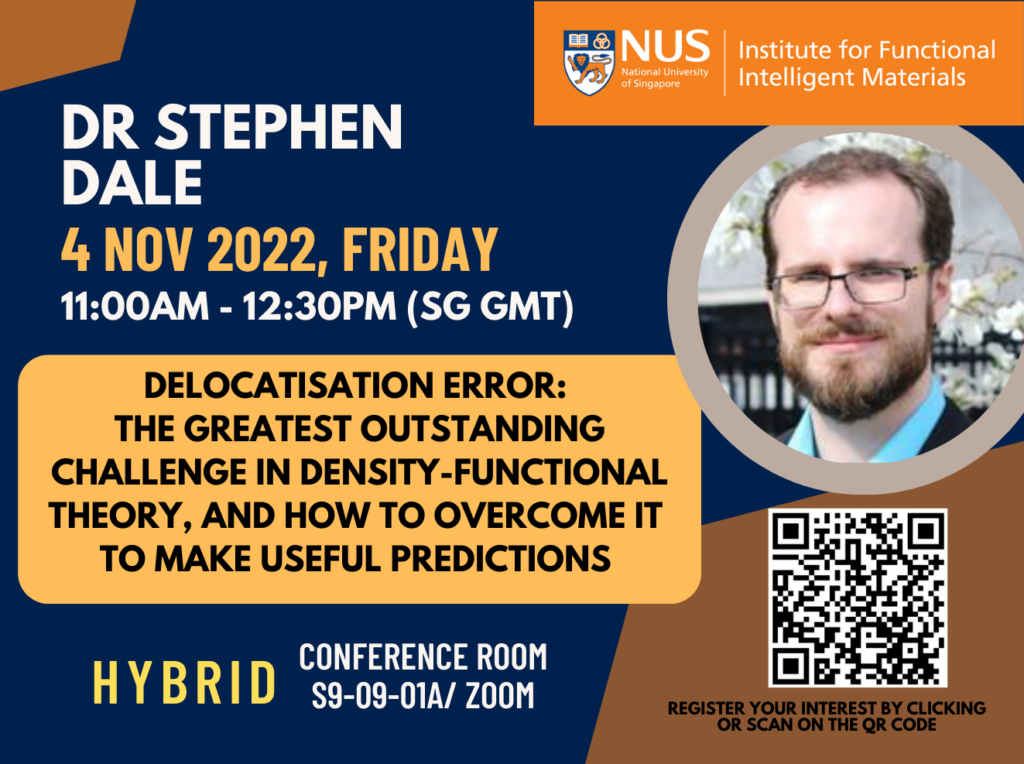ABSTRACT:
Density-functional theory (DFT) is the most efficient and most popular quantum mechanical modelling method available today, with an impact on most scientific and technological disciplines. Despite this, DFT based methods still suffer from a number of flaws which hinder achieving desirable levels of accuracy. One of the most persistent of these flaws is delocalization error, which contributes to the `band-gap problem’, over-stabilises fractional charge, and smears electron density to be as homogenous as possible. This talk will discuss different ways to identify delocalisation error and examples of real chemical systems that are impacted. It will also discuss recommendations of how to account for delocalisation error to still achieve productive computational predictions.
In addition to theory, I will discuss a unique class of ionic materials, electrides, in which anions are stoichiometrically replaced by localised electrons. By understanding how delocalisation error would manifest in this system I was able to use DFT methods to present the first magnetic state predictions of the electride materials, reproducing experiment to a remarkable degree of accuracy. More importantly, I predicted that the magnetic state of the electride changes from anti-ferromagnetic to ferromagnetic under pressure, demonstrating magnetostrictive properties.[Dale et al. JPCC 2018] Magnetostrictive properties were later confirmed in electride materials [Lee et al. Nature Comm. 2020].
BIOGRAPHY:
Dr. Stephen Dale is a Researcher Grade 2 in the Queensland Micro- and Nanotechnology Centre at Griffith University. In 2017, he received his PhD from the University of California, Merced in the group of Prof. Erin Johnson. He then moved to Dalhousie University in Canada to work with Prof. Axel Becke, before moving to the Australian National University and University of Sydney to work with Prof. Peter Gill, and then his current position working with Assoc. Prof. Tim Gould. Dr. Dale’s area of expertise is Theoretical and Computational Chemistry with a focus in Density Functional Theory (applications and development) and Advanced Materials.
Join us via Zoom!
https://nus-sg.zoom.us/webinar/register/WN_btW8blELQtWg8w_81EYQrA

